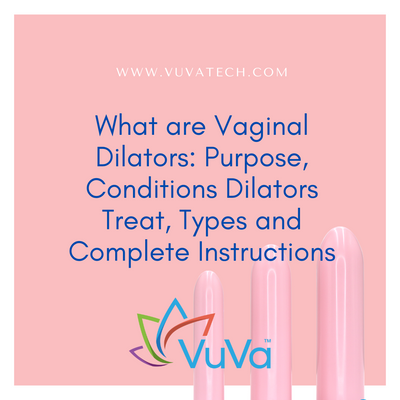
| Caroline Knight
Why Does Vulvodynia Flare-Up?
What can I do?
Here at Vuvatech we have covered the topic of vulvodynia extensively, since it affects so many women around the world. We talked about it in depth in this article on vulvodynia, so for this current article, we will focus on what causes vulvodynia to flare-up and how you can prevent this.
In short, vulvodynia is characterized by burning, stinging, aching, throbbing (or general soreness) in and around the vulva. Outwardly there may be no visible signs of a problem; however, redness and inflammation is sometimes present, and itching is common. Unfortunately, it can manifest seemingly out of nowhere, and typical vulvodynia symptoms may be intermittent, short-lived, or persistent. Vulvodynia flare-ups can happen over a period of months, and unfortunately for some, years.
Vulvodynia can happen to any woman, at any time from her teen years onwards. Numbers of women affected by vulvodynia are thought to be between 200,000 and six million. However, vulvodynia and vulvar vestibulitis syndrome are more likely to happen to women who have the autoimmune conditions Sjogren's Syndrome and lupus erythematosus; fibromyalgia is also now linked vulvodynia and VVS.
What causes a vulvodynia flare-up?
Since nobody knows exactly what causes vulvodynia in the first place, there’s no way to guarantee avoiding flare-ups. However, there does seem to be a link between vulvodynia flare-ups and the following activities or situations:
- Sexual intercourse
- Exercise – in particular cycling (but even light exercise such as walking)
- Inserting tampons
- Irritating contraceptive creams or spermicides
- Sitting for too long (especially in damp gym clothing or swimwear)
- Using astringent or perfumed soaps, shampoos, douches and toilet paper
- Wearing non-breathable underwear in synthetic fabrics like nylon or polyester
- Wearing tight-fitting pants
- Coming into contact with chemicals such as chlorine
- Presence of bacteria and residue urine
- Pressure on the bowel or bladder
If you have vulvodynia, it may be down to one or more of the following reasons. Unfortunately, it is difficult to avoid such things, but being aware of the situations and activities listed above may prevent regular flare-ups:
- Injury or irritation to nerves
- Muscle spasms
- Changes in hormone levels
- Hypersensitivity to yeast infections
- Allergic reactions to chemicals
- Excessive use of antibiotics
- Vulva cells responding abnormally to trauma, infection or inflammation
Although it may seem counterintuitive, STDs are not linked to the manifestation of vulvodynia.
If you are having a flare-up, here’s what you can do
Go to the toilet regularly, rather than waiting for a full bladder, since this prevents pressure on the bladder. Avoid strong-smelling soaps and detergents – go for chemical-free options instead. Avoid washing your underwear with fabric softener too, as it contains a lot of chemicals.
Only buy soft, unscented toilet roll, and after using the toilet, clean your vagina with water every time. You should do the same after sexual intercourse to prevent bacteria from proliferating. As for underwear – no synthetics! 100% cotton is breathable and soft. The same goes for tampons and sanitary pads should be chemical free and made from non-synthetic materials.
When showering, try to make sure that shampoo doesn’t come into contact with your vaginal area. The rest of the time, try to keep the area clean and dry. When taking the above precautions every day, you’re less likely to experience a vulvodynia flare-up. You may also benefit from using vaginal dilators for vulvodynia treatment, as many women with vulvodynia do. We hope you found this article useful… it’s one of many, so feel free to check out the Vuvatech blog for more articles on vulvodynia and other women’s health issues.













